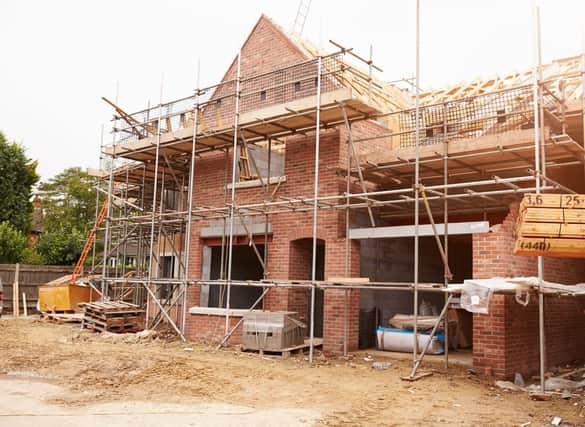These are the new planning rules being introduced to make it easier to build houses in England


Housing Secretary Robert Jenrick has said that a raft of new changes to the current planning system in England will make it easier to build new houses.
Changes are set to be made to the system in order to speed up the planning process, which is currently “outdated and cumbersome”, according to Mr Jenrick.
What changes are being made?
Advertisement
Hide AdAdvertisement
Hide AdMr Jenrick has said new homes and hospitals will be granted "automatic" permission to be built, as part of new planning changes in England.
These new changes come after Prime Minister Boris Johnson pledged £5bn to build new homes and infrastructure, as a way of helping the economy recover from the impact of the coronavirus crisis.
Mr Jenrick has also said that local people will not be able to block developments which are in designated “growth” zones.
The Housing Secretary told BBC Radio 4's Today programme that locals would still get a say at the start of the planning process when local plans are drawn up.
Advertisement
Hide AdAdvertisement
Hide AdHowever, after this stage, they will not be able to block new schemes.
The government says it wants to reduce the number of planning cases that get overturned at appeal and is creating a "clearer, rules-based system".
It takes an average of five years for a standard housing development to go through the planning system under current planning rules.
Mr Jenrick said this has contributed to the housing crisis and lower home ownership among young people.
Advertisement
Hide AdAdvertisement
Hide AdMr Jenrick also said that he wants to change the way in which developers contribute to both the cost of building affordable housing and new infrastructure in each project.
Therefore, the government will introduce a national charge for developers. This will replace the existing Section 106 agreements and the Community Infrastructure Levy.
It will also fund projects such as schools, roads and GP surgeries, alongside a fixed proportion of affordable homes in a housing development.
Mr Jenrick told BBC Breakfast, "We think our new system will still be democratic, it will still have local engagement, but it will be much faster and help us to meet the needs of the next generation."
Where will these changes take effect?
Advertisement
Hide AdAdvertisement
Hide AdThe changes, being brought forward this week, are expected to only impact England.
In the rest of the UK, national planning policy is devolved to administrations in Scotland, Northern Ireland and Wales.
‘Lack of government investment’
Not everyone has agreed with the new system.
Homeless charity Shelter warned against any reforms that will lead to "bad-quality" housing.
Polly Neate, the charity’s chief executive, said: “Instead of getting England building faster, major changes to the planning system could actually slow England down.
Advertisement
Hide AdAdvertisement
Hide Ad“Housebuilders risk facing uncertainty as they scramble to understand the new system and what it means for their plans – just as the construction industry is facing a huge economic downturn. In fact, it could even inadvertently put the frighteners on developers building new homes.
Ms Neate added that it is not planning permission which is stopping England from “getting high-quality, genuinely affordable homes,” but “a lack of Government investment.”